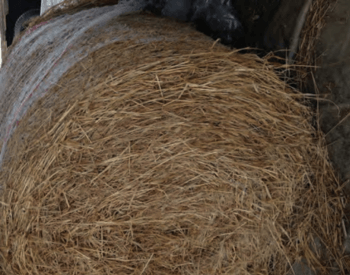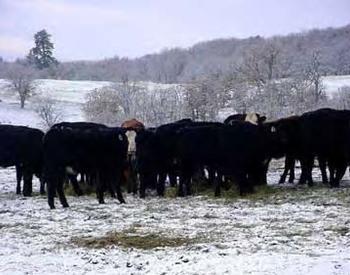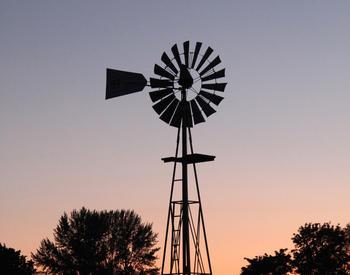Transcript
Sheep & Goats building flock or herd 1
Welcome to Living on the Land, an award-winning source of useful information brought to you by your Oregon State University Extension Service. Before you buy sheep or goats, find out about the seller's reputation and the quality of their livestock. Get permission to contact their veterinarian and ask questions about the farm and livestock. If you know other people who bought animals from the seller, talk with them to see how well the animals worked out. Were the animals healthy and easy to deal with?
Or were some of them too timid or aggressive? How well did they grow and produce? And what's the seller's return policy? Ask the seller for the animal's health and history records. Good records should show the animal's age when they were vaccinated and dewormed, dates of any illnesses and treatments, breeding and pregnancy dates, and any surgeries. If the animals are registered, be sure to get their registration papers. Work with your veterinarian. He or she can help you find healthy animals, design vaccination and parasite control programs, and advise you about nutrition. You'll want to arrange for your vet to examine the animals before you buy them.
It's a wise investment, especially when you're buying breeding animals. It's also wise to do some lab tests on your foundation animals. Ask your veterinarian how to test or screen for certain contagious diseases, like, Yoni's disease, Mycoplasma, Contagious abscesses, CAE, and OPP.
There are also genetic tests you can have done before you buy, such as Scrapey's Asceptibility and Spider-Lamp Syndrome for Sheep, and G6S deficiency for Nubian goats and crosses. Ask your veterinarian for details. If you're adding animals to an existing herd or flock, isolate the new ones at least 30 feet downstream and downwind from the other animals for at least three months. Do chores for the new animals last. Contain the animals in one area in case any develop signs of illness. Sheep and goats are social animals.
They need time and space to establish a new pecking order. Be sure there's plenty of feeding and watering space for all animals, including the timid ones. If possible, get some of the feed and water the new animals had before, and gradually change them over to their new ration. Establish a system to identify each of your animals and keep accurate health, breeding, and production records for each one.
Be a wise steward. Don't buy more animals than you can afford to feed and care for or more than your land can support. Visit your local extension office for advice about how many animals your land can carry. For more information on getting started raising sheep and goats, contact your local extension agent, veterinarian, Natural Resources Conservation Service, or Soil and Water Conservation District. Technical and financial assistance is available for landowners wishing to address resource concerns on their property.
This podcast episode provides essential guidance on buying sheep or goats. Prioritize seller reputation, livestock quality, and comprehensive health records. Collaborate with a veterinarian for thorough examinations and consider genetic testing. Ensure wise stewardship by only acquiring animals within your means and seek local resources for further assistance.
This is from the Living on the Land series. Download the related PDF - Living on The Land: Getting Started with Sheep and Goats
The phrase “Living on The Land” is used with permission from Living on The Land Stewardship for Small Acreage, © 2008, UNCE/WSARE.















